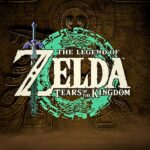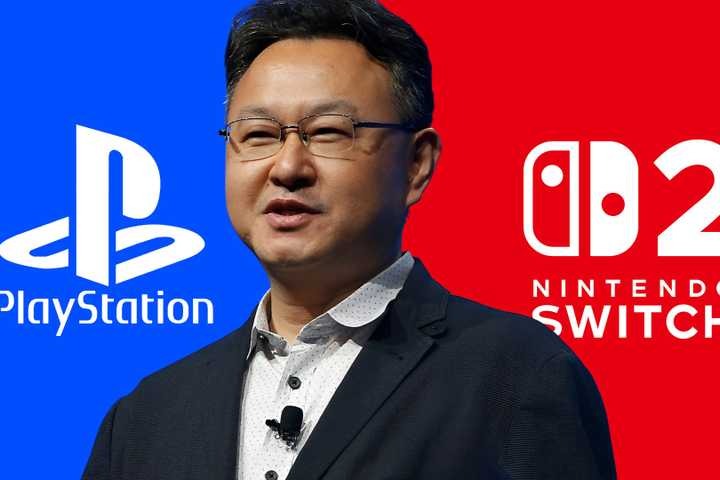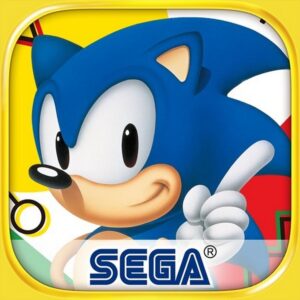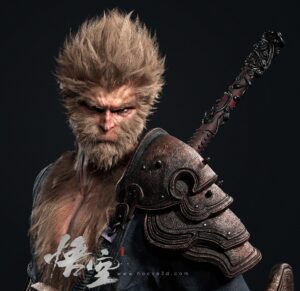“Nintendo Doesn’t Show Up”: Former PlayStation Boss Reveals Sony’s True Competitive Focus
Popular Now
 Black Myth: Wukong
Black Myth: Wukong
 Geometry Dash
Geometry Dash
 The Legend of Zelda
The Legend of Zelda
 Garena Free Fire: Kalahari
Garena Free Fire: Kalahari
 Poppy Playtime
Poppy Playtime
 FIFA 23
FIFA 23
 Toca Boca World
Toca Boca World
 Genshin Impact
Genshin Impact
 Schedule I
Schedule I
 League of Legends
League of Legends

In a surprising, yet perhaps unsurprising, revelation that has sent ripples through the gaming community, Shuhei Yoshida, the esteemed former head of PlayStation Studios and currently the head of PlayStation’s independent developer initiative, has stated that Sony Interactive Entertainment (SIE) does not view Nintendo as a direct competitor in their core business analysis. Instead, PlayStation’s primary focus in the console market remains squarely on Microsoft’s Xbox.
Yoshida’s comments, made during a recent appearance on the “Kit & Krysta Podcast” (hosted by former Nintendo employees Kit Ellis and Krysta Yang), shed light on Sony’s strategic thinking and the distinct market segments occupied by the major console manufacturers. This perspective, coming from a long-time veteran at the highest echelons of PlayStation, offers a rare glimpse into how the industry’s giants perceive their rivals.
The Xbox-Centric View: Performance and Target Audience
According to Yoshida, when PlayStation conducts its internal business analyses, Nintendo largely “doesn’t show up” as a direct competitor outside of Japan. He clarified that Sony harbors “huge respect for what Nintendo does” but that their competitive lens is firmly fixed on Xbox due to the similarities in their offerings:
- Similar Hardware Philosophy: PlayStation and Xbox both traditionally aim for high-end console performance, targeting a demographic that seeks cutting-edge graphics and mature, graphically intensive games.
- Target Audience Alignment: Both platforms largely cater to a similar audience of “core” and “hardcore” gamers who prioritize immersive, cinematic experiences and high-fidelity visuals.
Yoshida’s perspective aligns with previous comments from other PlayStation executives, including former SIE CEO Jim Ryan, who also stated in 2023 that Nintendo was “not Sony’s direct competitor” in the broader console market. These statements underscore a long-held belief within Sony that their primary battle for market share and consumer mindshare is with Xbox, as they compete for a similar segment of the gaming populace.
Nintendo’s Unique Position: Expanding the Gaming Pie
Conversely, Nintendo’s strategy and target audience are viewed as distinctly different:
- Unique Hardware Approach: Nintendo consistently prioritizes innovative gameplay experiences and unique hardware gimmicks (like the Switch’s hybrid nature) over raw graphical power. This allows them to appeal to a broader, more diverse audience, including younger players and families.
- Bringing New Players into the Fold: Yoshida noted that PlayStation actually views Nintendo’s success as beneficial to the overall industry. “Nintendo is bringing a younger audience into gaming, and some of them when they grow up, might graduate into more mature systems like PlayStation or Xbox,” he explained. This sentiment suggests that Nintendo acts as a vital entry point for new gamers, ultimately expanding the potential market for all console manufacturers.
- Japan Exception: The one significant exception Yoshida highlighted is the Japanese market, where Nintendo remains “hugely strong” and Xbox “almost doesn’t exist.” In their home territory, Sony undoubtedly views Nintendo as a formidable force.
The “Console Wars Are Over” Narrative?
Yoshida’s comments also touch upon a growing sentiment among industry veterans: the traditional “console wars” of fierce, direct head-to-head competition might be largely over, at least in their previous form. While platforms still compete for consumer wallets and playtime, the distinct strategies employed by Nintendo, PlayStation, and Xbox suggest a market where each company can carve out its own successful niche without always being in direct opposition.
Former PlayStation executive Shawn Layden echoed a similar sentiment earlier this year (April 2025), stating that “only the dog can hear” the difference between console generations now, implying that the hardware differences between PlayStation and Xbox have become less significant for the average consumer. This perspective suggests a shift from pure power benchmarks to ecosystem strength, exclusive content, and unique experiences.
Implications for the Future of Gaming
This strategic outlook from PlayStation has several implications for the future of the gaming industry:
- Continued Divergence: We can expect PlayStation to continue its focus on high-fidelity, narrative-driven, and mature-rated titles, while Xbox leans into its Game Pass ecosystem and multi-platform publishing strategy. Nintendo will likely persist with its innovative hardware and beloved first-party franchises that appeal to a broad demographic.
- Collaboration Potential: While competition always exists, an understanding of distinct market segments could, in theory, foster more indirect collaboration or at least a less aggressive rivalry between PlayStation and Nintendo, as they are seen as expanding the overall gaming market rather than directly cannibalizing each other’s share.
- Targeted Marketing and Development: Both companies will continue to refine their marketing efforts and game development pipelines to cater specifically to their identified core audiences, optimizing their return on investment.
Ultimately, Yoshida’s insights reaffirm that despite the constant chatter about “console wars,” the reality within Sony’s boardrooms is a more nuanced one. While they hold immense respect for Nintendo’s unique contributions, PlayStation’s strategic gaze is firmly fixed on its most direct rival, Microsoft, as they continue to battle for dominance in the high-performance console arena. This clarity in competitive positioning shapes not only their business decisions but also the very games and experiences they bring to millions of players worldwide.









